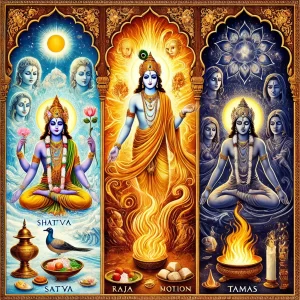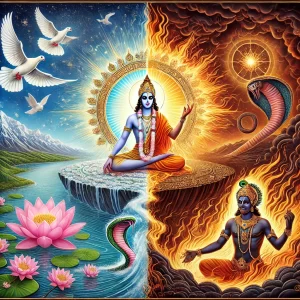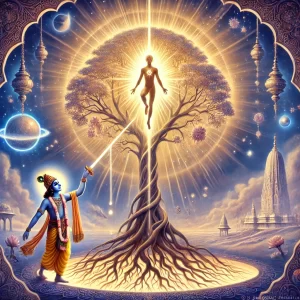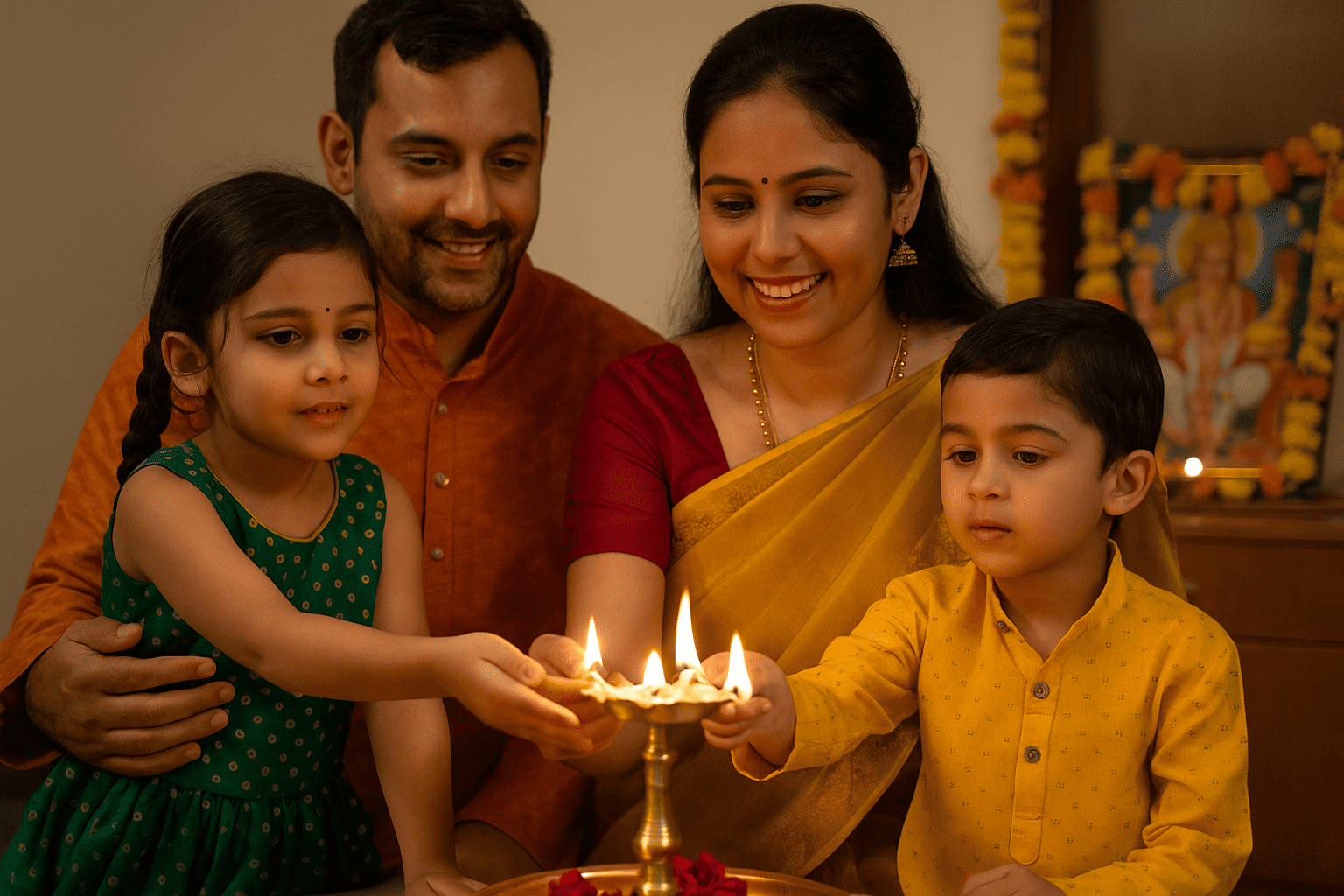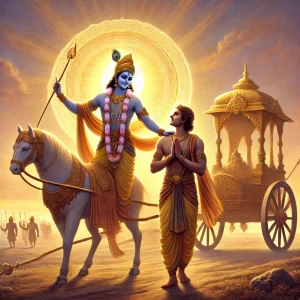
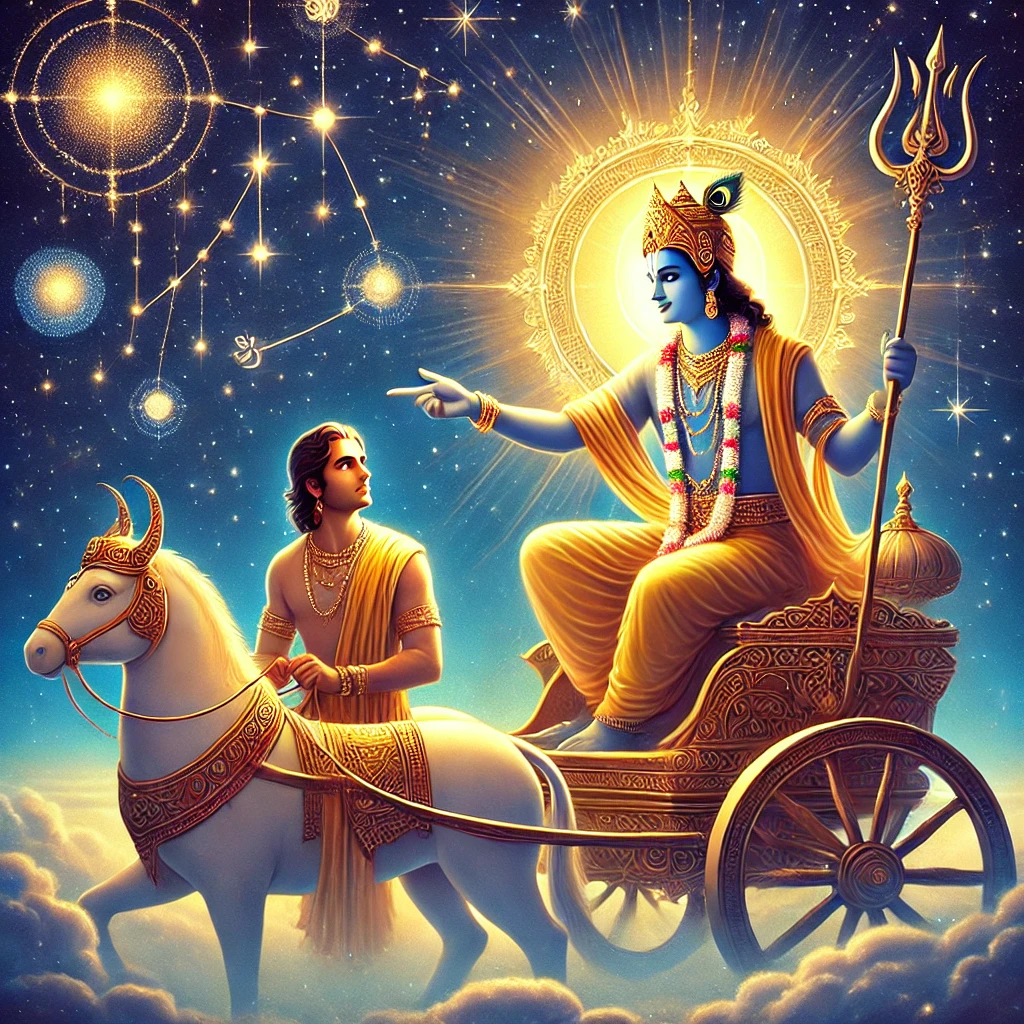
— Akshara Brahma Yoga: The Yoga of the Imperishable Absolute
Chapter 8 of the Bhagavad Gita, Akshara Brahma Yoga, is a deeply philosophical chapter that brings together themes of life, death, consciousness, and the eternal nature of the soul. Arjuna begins this chapter by asking a series of profound questions about the soul (Brahman), the self (Adhyatma), action (Karma), and what happens at the time of death.
Krishna responds with clarity and compassion, offering not only metaphysical insight but practical guidance for living with purpose and dying with peace.
Here are five key lessons from Chapter 8, expanded for modern life.
1. You Are Not the Body—You Are the Eternal Soul
Krishna explains that the soul (Atman) is not bound by the physical body or time. The soul is a part of the imperishable Brahman, untouched by death. What dies is the body; what remains is consciousness.
Verse 3: “Brahman is the imperishable Supreme. The individual self is called Adhyatma. Action (karma) is the offering that causes beings to manifest.”
Lesson: When we live with the awareness that we are not just this body or identity, we stop getting overly disturbed by temporary problems. A deeper identity—the observer, the witness—exists within you. Live from that space, and life feels less fearful, more purposeful.
2. Your Final Thoughts Reflect the Life You’ve Lived
Krishna makes a powerful statement: whatever one remembers at the time of death, that they attain. It’s not about a single moment but a reflection of one’s overall inner focus throughout life.
Verse 6: “Whatever one remembers at the time of death, that alone is reached, O Arjuna, being ever absorbed in that state.”
Lesson: Your daily thoughts shape your destiny. Train your mind to focus on love, service, truth, and the divine—not just in crisis, but regularly. A peaceful death is born from a peaceful life.
3. Consistent Practice Anchors You in the Eternal
Krishna introduces the concept of Abhyasa Yoga—regular spiritual practice that keeps the mind focused on the eternal. Chanting, meditation, prayer, or acts of devotion help one remain anchored in the divine consciousness.
Verse 8: “With practice, constantly remembering Me, the yogi who is ever united with Me reaches the Supreme.”
Lesson: Just like physical fitness, spiritual clarity needs regular practice. Start small—5 minutes of silence, a morning prayer, reading sacred texts. Over time, these build inner resilience and grace.
4. There Are Two Paths After Death: Return or Liberation
Krishna talks about the two paths souls may take after death:
These aren’t about judgment but about the soul’s inner readiness and alignment with higher truth.
Verse 26–27: “There are two paths—bright and dark. One leads to liberation, the other to rebirth. Knowing these, the yogi is never deluded.”
Lesson: Every action and intention creates momentum. When we live with awareness, kindness, and selflessness, we move closer to inner freedom. Our journey doesn’t end at death—it continues. Make each day a conscious step forward.
5. The Divine Is Always Accessible—Here and Now
Though the chapter speaks about death, its central message is not about leaving the world—but about awakening to the eternal truth while still alive. Krishna urges Arjuna to see that the divine isn’t far away. It’s accessible now, through awareness, devotion, and love.
Verse 14: “He who constantly remembers Me with unwavering devotion, I am easily attainable by such a steady yogi.”
Lesson: You don’t need to wait for a “perfect” time to become spiritual. Every breath is a doorway to the Divine. Don’t postpone peace. Start now, with sincerity. Even small efforts—done with love—bring you closer to your higher self.
Final Thoughts
Chapter 8 of the Bhagavad Gita reminds us of what truly matters: not how long we live, but how aware and aligned we are while living. It teaches that the soul is eternal, that regular spiritual practice prepares us for both life and death, and that the Divine is always close—waiting to be remembered.
Whether you’re on a spiritual path or just beginning to explore life’s deeper questions, this chapter offers a reassuring truth:
“You are never alone. You are never lost. You are the light that never dies.“

